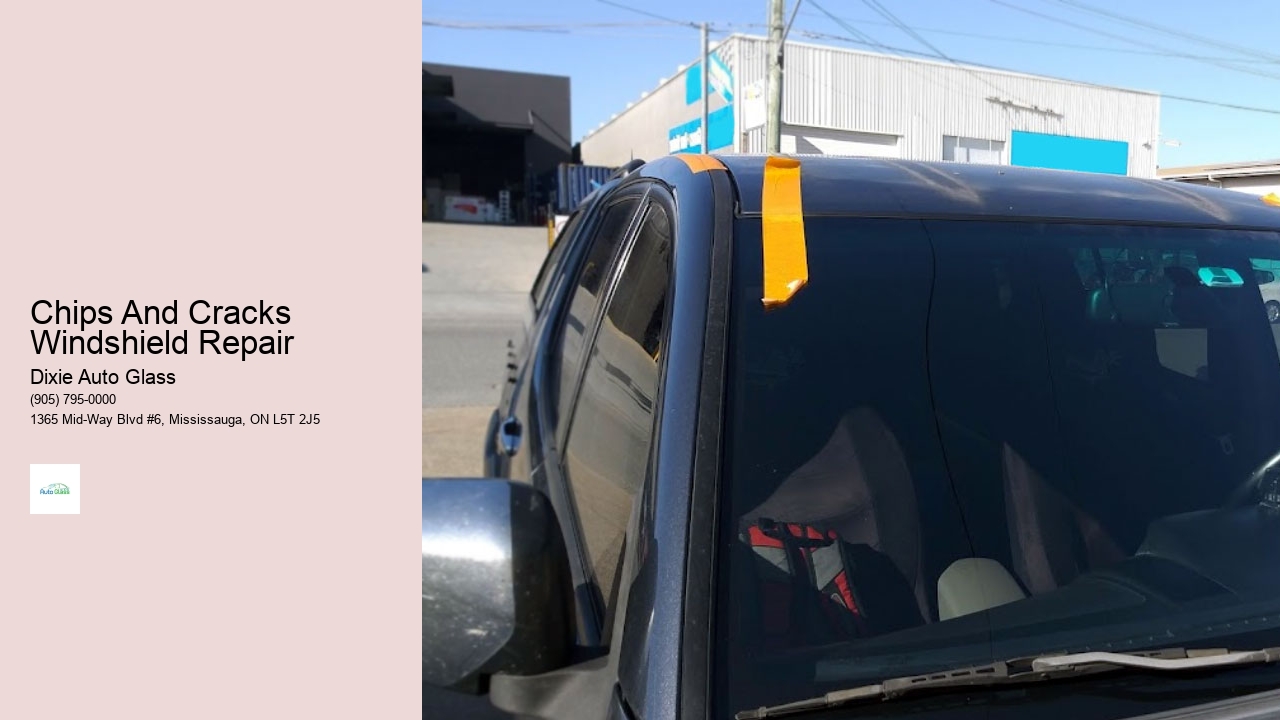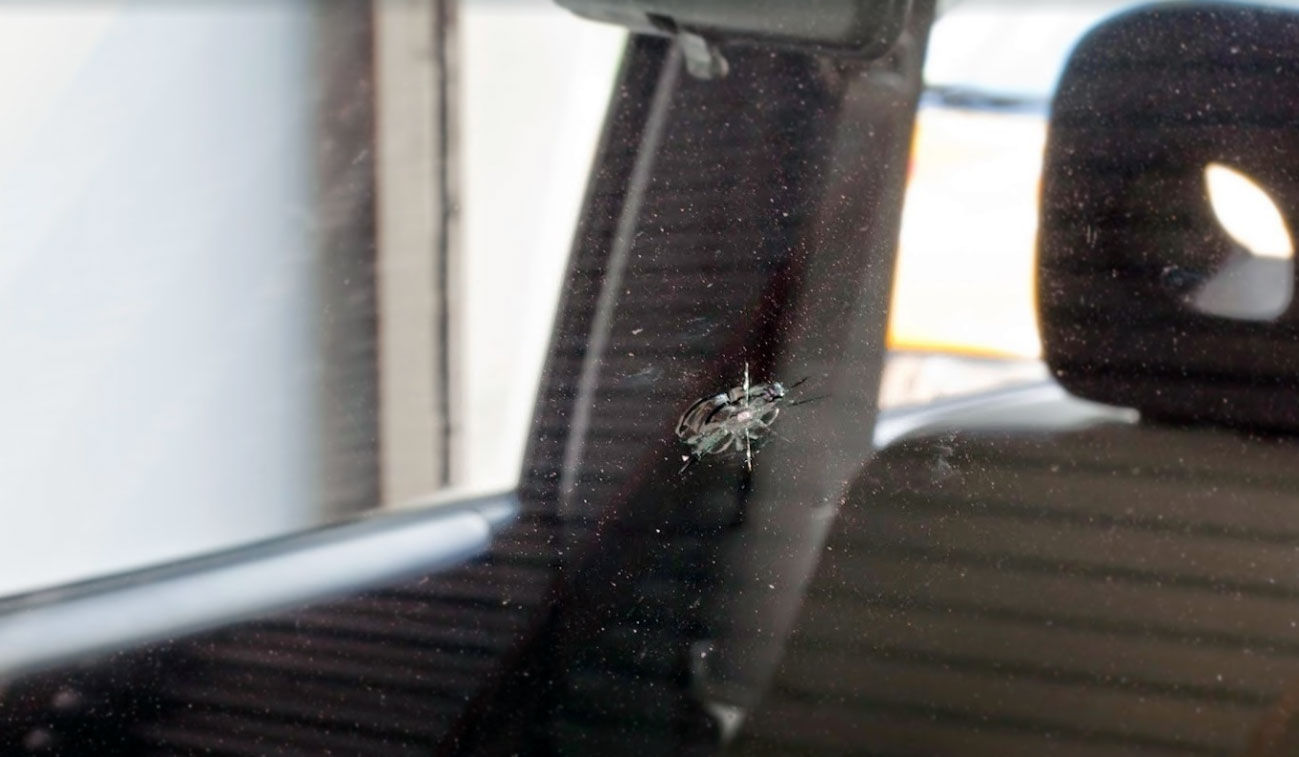

At Dixie Auto Glass, we know how important keeping your windshield in top condition is. Whether a tiny chip from a loose pebble or a growing crack from a recent cold snap, your windshield is critical in keeping you safe on the road. Located in the heart of Mississauga, we’ve been helping local drivers get back on the road quickly and safely for years, offering expert windshield repair with a personal touch. What sets us apart? It’s simple. We genuinely care about our customers. Our skilled technicians have the training and experience to handle windshield damage of all types, using high-quality resins and advanced repair techniques to restore your glass to like-new condition. This not only saves you time and money but also helps preserve the structural integrity of your vehicle. We understand that life in Mississauga moves fast, and nobody has time to deal with a cracked windshield. That’s why we offer same-day repairs and mobile service throughout the city, including Port Credit, Streetsville, and Meadowvale. If you can’t make it to our shop, we’ll come to you—whether you’re at home, work, or anywhere in between. Plus, we work directly with all major insurance providers, making the process as smooth and stress-free as possible. In many cases, your windshield repair might even be covered with no out-of-pocket costs. For fast, friendly, and reliable windshield repairs in Mississauga, trust the local experts at Dixie Auto Glass. We’re here to keep your view clear and your drive safe. Give us a call or book your appointment today—your safety is our priority.
Windshield repair resin is a critical component in the auto glass repair industry. This specialized adhesive is formulated to mend cracks and chips in automotive glass, restoring both its strength and clarity. The primary ingredient is a methacrylate monomer, which provides the base for the resin's adhesive properties. Coupled with this are various additives that enhance the resin's performance; these may include silanes that promote adhesion to the glass surface, ultraviolet inhibitors to protect against sun damage, and plasticizers that improve flexibility.
The effectiveness of windshield repair resin largely depends on its viscosity. Viscosity determines how well the resin can penetrate into tiny cracks and crevices within damaged glass. For minor chips, a lower viscosity resin is used because it flows easily into small spaces. In contrast, higher viscosity resins are better suited for larger breaks as they can fill more significant gaps without shrinking back during curing. Achieving the right balance between fluidity and stability ensures that once cured, the resin maintains its integrity within the crack or chip.
Curing is an essential step in windshield repair that solidifies the liquid resin into a hard, transparent substance bonding with the glass. Typically, UV light initiates this process by triggering a catalyst in the resin that causes it to polymerize rapidly. The quality of curing equipment varies but must provide adequate UV wavelengths to ensure complete polymerization throughout all layers of applied resin.
After curing, it's crucial for repaired areas to match as closely as possible with original windshield strength to maintain safety standards. High-quality resins achieve bond strengths capable of withstanding impact and preventing further cracking while enduring temperature fluctuations and mechanical stresses experienced during regular vehicle operation. They also possess optical clarity comparable to original glass, minimizing visual distortions at points of repair.
Lastly, environmental factors play a role in both applying windshield repair resins and predicting their longevity. Technicians must consider ambient temperatures since extreme cold or heat can affect how resins cure or behave once hardened on a windshield surface. Additionally, modern formulations aim for reduced environmental impact by avoiding volatile organic compounds (VOCs) commonly found in earlier generations of auto repair materials ensuring compliance with increasingly stringent environmental regulations.
View Windshield Repair Mississauga Dixie Auto Glass in a full screen map
| Windshield Crack & Auto Glass Repair – Greater Mississauga | |
|---|---|
| Windshield Crack Repair Mississauga | High-quality repairs for all types of windshield cracks in Mississauga. |
| Fix Windshield Crack Near Me | Trusted mobile or in-shop crack repair near your location. |
| Car Windshield Crack Repair | Restore the strength and clarity of cracked auto glass affordably. |
| Windshield Crack Repair | Specialized services for minor and major windshield crack issues. |
| Repair Windshield Chip Near Me | Quick local service for rock chips and stress cracks. |
Windshield damage can occur in many forms and is often caused by the impact of debris, such as stones or pebbles, while driving. It's vital for vehicle owners to understand the difference between chips and cracks as each type of damage can have varying implications for the integrity of the windshield and, subsequently, the safety of passengers.
A windshield chip is a small point of damage that typically manifests as a pit or notch on the glass surface. These chips are often rounded or star-shaped where a piece of glass has been removed by an object striking it. Although they may appear minor, chips weaken the windshield structure and can quickly evolve into larger cracks if not addressed in time.
On the other hand, a crack is characterized by a distinct line that travels across the windshield's surface. Cracks can vary greatly in length; some may be less than an inch long while others could span across the entire pane of glass. They tend to spread progressively over time due to stress from temperature changes, road vibrations, and physical pressure.
Both chips and cracks pose potential risks to drivers' visibility depending on their size and location. A large crack might obstruct a driver's field of view or catch light glare, leading to unsafe driving conditions. Similarly, multiple chips could create distractions or reduce clarity through the windshield. In terms of safety implications, compromised windshields may not perform as expected during accidents—especially during airbag deployment which relies on windshield support.
When contemplating repair options for chips and cracks, several factors come into play including size, depth, location, and number of damages present on the windshield. Generally speaking, small chips can be easily repaired with resin injections that restore integrity without needing full replacement; whereas longer cracks often necessitate complete windshield replacement due to structural compromise.
To preserve driver safety and avoid costlier repairs down the line, it’s advisable to address any form of windshield damage promptly. Routine inspections for signs of wear or impacts help catch issues early when they're most manageable. Vehicle owners should consult with auto glass professionals who can accurately assess damage types and recommend appropriate actions based on industry standards and safety considerations.

Repair is better if the chip is small replacement is only necessary if it's too large or in a critical area.
Don't wash with hot water, avoid slamming doors, and don't delay repair these can worsen the crack.
Stone chip repair usually costs $40-$100, depending on location and service.
Yes, repairs can prevent the crack from spreading and are much cheaper than a full replacement.
DIY kits work for minor chips or small cracks but aren't as reliable or durable as professional repairs.
You should be concerned if it's larger than 6 inches, near the edges, or obstructing your view.